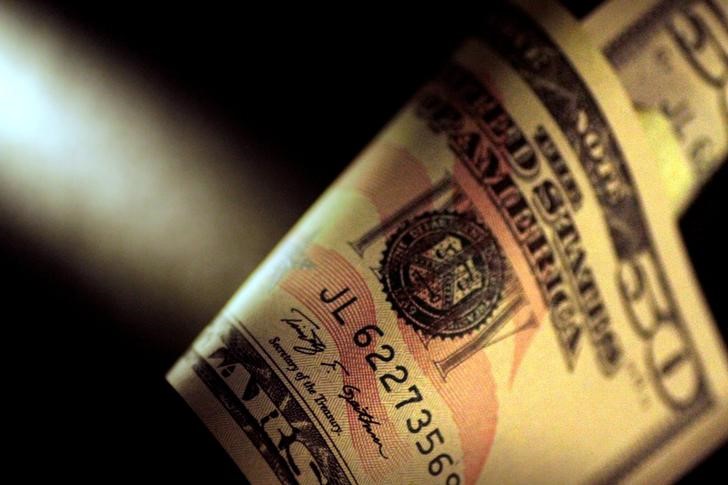By Peter Nurse
Investing.com - The U.S. dollar dropped sharply in early European trade Friday, after hawkish comments from the European Central Bank prompted traders to reassess global rate hike expectations.
At 03:15 ET (07:15 GMT), the Dollar Index, which tracks the greenback against a basket of six other currencies, traded 1.1% lower to 108.585, heading for a 0.6% weekly drop after climbing to a 20-year high of 110.79 earlier in the week.
Federal Reserve chair Jerome Powell reiterated Thursday that the central bank was "strongly committed" to controlling inflation, a stance that largely cemented the market’s belief that the U.S. central bank will hike by 75 basis points at its next meeting in just under two weeks.
However, his comments were largely expected, and it was the very hawkish stance of the ECB which changed the dial.
The European Central Bank raised its key interest rates by an unprecedented 75 basis points on Thursday and promised further hikes, prioritizing the fight against inflation even as the bloc is likely heading towards a winter recession.
The hawkish stance prompted a sharp bout of profit-taking after the dollar's long rally, with some traders attempting to square up positions as it became clear other central banks other than the Fed were now hike aggressively to tame inflation.
EUR/USD rose 1% to 1.0091, climbing firmly back towards parity after hitting a 20-year low of 0.9863 earlier in the week.
Traders are also focusing on the EU summit later Friday as the 27-member bloc gets together to discuss its response to the regional energy crisis.
Belgian Prime Minister Alexander De Croo warned Thursday that Europe faces "de-industrialization and severe risk of fundamental social unrest" because of the energy crisis.
GBP/USD rose 1% to 1.1616, heading for the best daily jumps in a month, and recovering from the modest dip made after the death of Queen Elizabeth II.
USD/JPY fell 1.2% to 142.31, helped by Bank of Japan Governor Haruhiko Kuroda stating that rapid yen moves were undesirable after a meeting with Prime Minister Fumio Kishida on Friday, adding to the recent verbal warnings over the currency's recent sharp drop to 24-year lows.
Risk-sensitive AUD/USD rose 1.4 to 0.6845, while USD/CNY fell 0.5% to 6.9264 after data on Friday showed Chinese inflation shrank in August, potentially opening the path for further monetary policy accommodation by the Chinese authorities.
